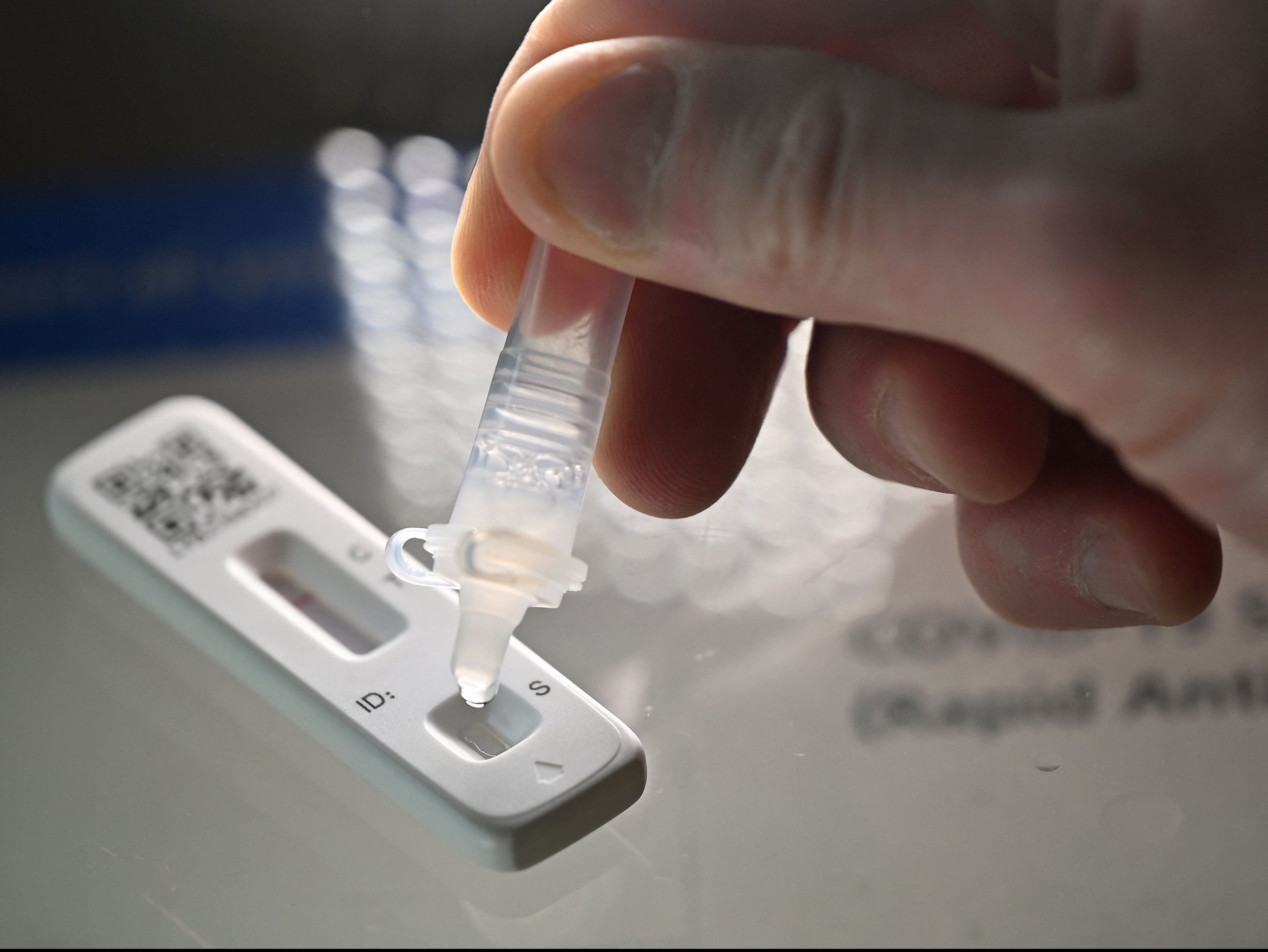Removal of free Covid testing marks the beginning of a new and uncertain chapter
We are right to scale back testing and ultimately strive to move on – but there is a much better way in which we can do it, argues Samuel Lovett


In ending free testing for the vast majority of people in England, the government is making clear its intentions to finally move on from Covid-19.
All restrictions have already been lifted. Mask wearing is no longer mandated. Self-isolation is a thing of the past for many. Travel has opened up once again to nations across the globe. The alien landscape of the past two years is slowly receding, replaced by its previous, more familiar form.
Therefore, the decision to remove PCR and lateral flow testing is, so we’re told, simply the next logical step in the transitory journey that we, and many other countries, are now taking.
Scientists are largely in agreement that universal testing cannot continue forever, given its scale and drain on public resources. Resources that need to be refocused elsewhere after the widespread disruption of the past two years. Perhaps, more significantly, testing is only useful if someone takes action as a result of their diagnosis.
Under the current guidance, there is no need to isolate if infected with the virus. Some still chose to do so. Others do not. But many people with symptoms are no longer bothering with testing in the first place, now that our perception of Covid – and the threat it poses – has changed. Whether rightly or wrongly.
“When I look at the cases I know through testing, and compare to the number I should be seeing based on the ONS data, testing is only finding three in every 20 cases,” says Alice Wiseman, director public health for Gateshead. “So the idea that this is the silver bullet just doesn’t hold.”
As such, she says, the “challenge we really have is communicating that this is not over and there are things, aside from testing, that we can do to prevent transmission.”
She points to self-isolating – “if possible” – when unwell, regardless of what the infection might be, and practising good hand and respiratory hygiene. “Handwashing and catch it, bin it, kill it … even if it’s not Covid.”
Other scientists have emphasised upgrading ventilation in schools, hospitals, care homes and offices – environments where the virus can easily spread (remember: vaccination protects against severe disease, but it doesn’t stop transmission, especially not with BA.2, the now-dominant Omicron sub-variant).
Improving sick pay, housing and the general health of the nation are additional measures that can further help the nation, especially the poorest among us, to live with Covid but not necessarily suffer its extreme consequences.
This is the key message that the government should be conveying as we seek to turn our back on the horrors, pain and suffering of the past two years: in a world in which we’re forced to co-exist with this deadly, ever-changing virus, we can both minimise its disruption and retain our liberties in the process.
But in preaching that the pandemic is over and encouraging the masses to ignore Covid, that is a risky game to play. Prevalence is reaching new record highs, with one in 15 people currently infected by the virus, according to the ZOE Covid study.
This will inevitably translate into higher hospitalisation and mortality rates and increased pressure on the NHS, and also risks accelerating the evolution of the virus.
We are right to scale back testing and ultimately strive to move on from Covid-19, but there is a much better way in which we can do it.






Join our commenting forum
Join thought-provoking conversations, follow other Independent readers and see their replies
Comments